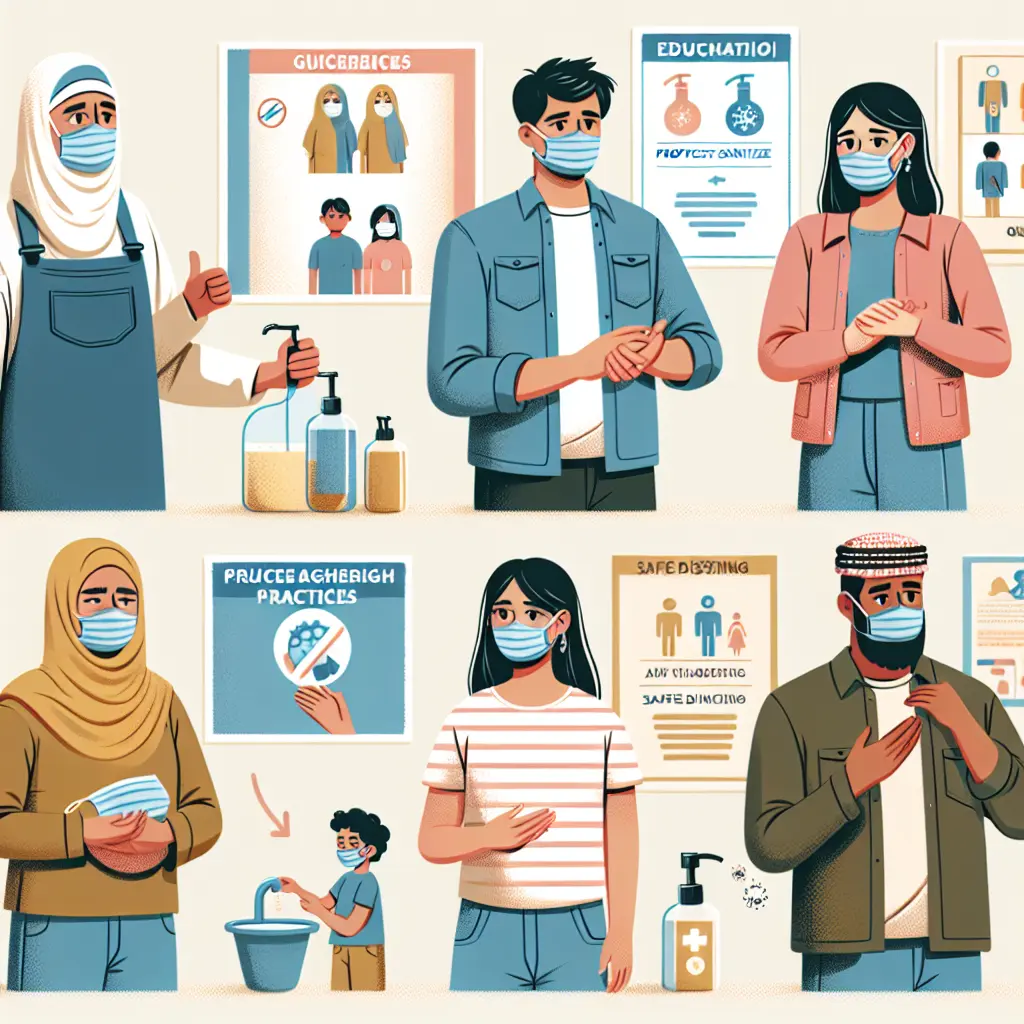
In recent years, monkeypox has become a significant public health concern, highlighting the urgent need for effective prevention strategies to safeguard individuals and communities. With reports of outbreaks increasing globally, it is essential to explore comprehensive safety tips focusing on preventing the spread of monkeypox through enhanced hygiene practices.
Understanding the Latest Developments
In 2024, monkeypox re-emerged as a global health issue, with outbreaks reported in various regions. Notably, Sweden's public health agency recorded the first case of a contagious new variant of mpox outside Africa, indicating the virus's potential to spread beyond its traditional geographic confines. This emergence has prompted international health authorities to reassess their protective measures (source).
Recognizing Symptoms and Preventing Transmission
Awareness of monkeypox symptoms and transmission prevention is crucial. Early recognition of symptoms, such as fever, headache, muscle aches, swollen lymph nodes, and rash, facilitates timely medical intervention. If you suspect you have mpox, it's vital to isolate immediately and seek medical advice. This proactive approach not only protects your health but also helps prevent further community transmission (source).
Reinforcing Hygiene Practices
Preventing the spread of monkeypox hinges on robust hygiene practices. Regular handwashing with soap and water, using alcohol-based hand sanitizers, and avoiding close contact with infected individuals are essential. Maintaining cleanliness in shared spaces and avoiding contact with potentially contaminated materials also play a critical role. For detailed guidance on hygiene practices, visit the CDC's Monkeypox Prevention Page.
The Importance of Vaccination
Vaccination is a cornerstone of community health strategies against monkeypox. The rise in cases has led many countries to ramp up vaccination efforts, particularly advising travelers to consider vaccination when visiting regions with known outbreaks. Vaccination provides individual protection and strengthens community defenses by reducing overall virus transmission (source).
Coordinated Community Efforts
A coordinated response during a monkeypox outbreak is critical. Community safety can be enhanced through adherence to public health guidelines recommended by organizations like the WHO. These include community education campaigns, effective communication strategies, and robust outbreak tracking systems (source). Aligning efforts across various stakeholders allows communities to respond more effectively to outbreaks and minimize their impact.
Promoting Public Health Initiatives
Public health initiatives play a pivotal role in preventing the spread of monkeypox. These initiatives may include educational programs that raise awareness about symptoms and transmission prevention. Engaging with community leaders and health professionals can enhance these initiatives' reach and effectiveness. Informed communities are generally more resilient against infectious diseases.
Enhancing Global Preparedness for Future Threats
The current situation underscores the need for ongoing vigilance and preparedness against future health threats. Global cooperation is vital in sharing resources, research, and strategies to combat monkeypox and other infectious diseases. Collaborative efforts can build a robust framework for responding to health emergencies, ensuring that we are better equipped to face future challenges.
Reflecting on Past Lessons
Lessons from past outbreaks, like the 2022 global mpox spread, guide our current strategies. The swift response in 2024 highlights the importance of international cooperation and rapid resource mobilization (source). Leveraging past experiences enhances our preparedness for future public health emergencies.
Conclusion: A Collective Commitment to Community Health
In conclusion, protecting yourself and your community from monkeypox requires a comprehensive approach encompassing awareness, hygiene practices, vaccination, and coordinated response efforts. By staying informed about the latest developments and adhering to public health guidelines, we can collectively safeguard our communities against this evolving threat. Remember, every action counts in the fight against monkeypox—together, we can build a healthier future for all.
Your experiences and insights are invaluable. Please share your thoughts on how we can better protect ourselves and our communities from monkeypox. For more detailed guidance, visit reputable sources like the WHO's Monkeypox Resource Page.
Stay vigilant, stay informed, and let's work together for a healthier tomorrow.
Warm regards, Clara Whitfield